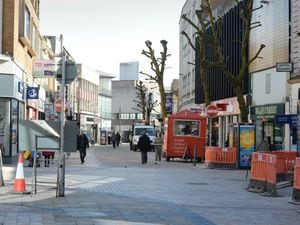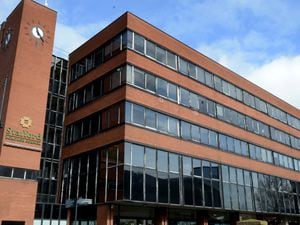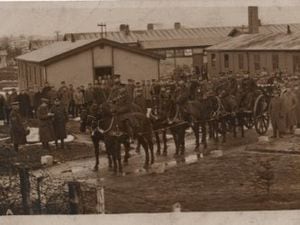Town centres in West Midlands almost as busy as before pandemic - Google data
Footfall across the West Midlands is just nine per cent below normal levels despite the coronavirus restrictions still in place, figures show.

Current curbs will remain a while longer, as Prime Minister Boris Johnson recently announced that the end of all coronavirus restrictions in England – which the Government's roadmap outlined would be June 21 at the earliest – would be delayed by up to four weeks.
Google uses location data from phones and other personal devices to track trends in people's movement in different parts of their daily lives.
It compares footfall in five areas outside of the home – retail and recreation, supermarkets and pharmacies, parks, public transport and workplaces – to a five week-baseline period recorded before the Covid-19 crisis.
In the West Midlands, average activity across these categories was just nine per cent below normal levels in the week to June 6.
This was up significantly from 42 per cent below in the week beginning January 4, when the UK was plunged into its third national lockdown.
Across the UK, average activity peaked at nine per cent above the baseline between May 31 and June 6 – a higher level than any other week since the UK entered its first lockdown in March 2020.
While many activities and venues such as large-scale events and nightclubs still have several weeks before they can return, many other parts of the economy have reopened.
After months of lockdown, the first coronavirus restrictions were eased in April when non-essential retail and outdoor hospitality resumed.
This was followed by pubs and restaurants welcoming customers indoors in May, along with many indoor entertainment and cultural venues, such as museums, theatres and cinemas – though all are operating at a reduced capacity.
Google data for the week ending June 6 in West Midlands shows: activity in retail and recreation establishments was 15 per cent below normal levels, in supermarkets and grocery stores, it was three per cent above usual, activity was 46 per cent above pre-pandemic measurements in parks and public spaces, it was 44 per cent below the baseline on public transport and activity in workplaces was 37 per cent below normal.
The Prime Minister pushed back the end of England’s coronavirus restrictions to July 19 due to concerns over the rapidly spreading Delta variant first identified in India.
Experts feared going ahead with step four on June 21 as planned could lead to hospital admissions on the scale of the first wave of Covid-19, heaping unsustainable pressure on the health service.
Limits on numbers for sports events, pubs and cinemas will therefore remain in place, nightclubs will stay shuttered and people will be asked to continue working from home where possible.
Mr Johnson left open the option of ending restrictions on July 5 if the data proves drastically better than expected, but conceded “let’s be realistic, probably more likely four weeks”.
Labour leader Sir Keir Starmer said the delay was a direct result of the Government's failure to secure the UK's borders from the Delta variant.
Speaking in the House of Commons, Sir Keir said: “We all want these restrictions to be over, for our economy to be open, for businesses to thrive – but the Prime Minister’s indecision at the borders has blown it.”





